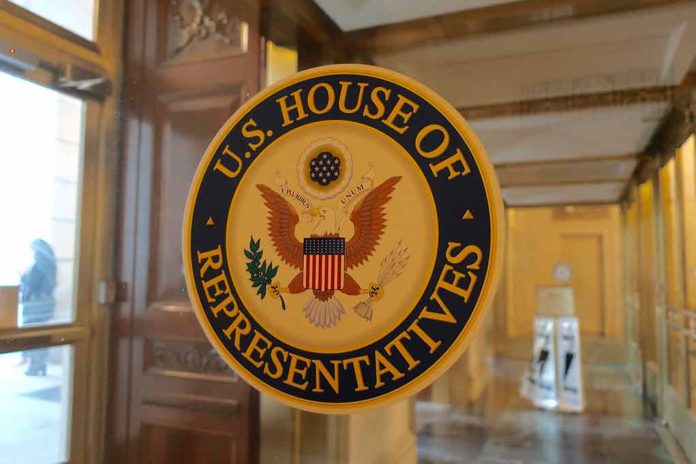
The House of Representatives rejected a critical stopgap funding bill that included a controversial voter citizenship requirement, raising concerns about a potential government shutdown and election integrity.
At a Glance
- House voted 220-202 against a funding bill with proof of citizenship mandate for voter registration
- Failure to pass the bill increases risk of partial government shutdown starting Oct. 1
- Republicans push for voter citizenship requirement despite research showing noncitizen voting is rare
- Speaker Johnson expected to pursue alternative plan to avoid shutdown
House Rejects Funding Bill with Voter Citizenship Mandate
In a significant setback for House Republicans, a crucial stopgap funding bill that included a controversial voter citizenship requirement was rejected by a vote of 220-202. The failure to pass this legislation has heightened concerns about a potential government shutdown and reignited debates over election integrity and voter access.
The proposed bill, championed by House Speaker Mike Johnson, aimed to extend government funding until March 28, 2025, while also implementing a proof of citizenship mandate for voter registration. This requirement, known as the SAVE Act, has been a key priority for Republicans who argue it is necessary to prevent noncitizen voting and ensure the integrity of U.S. elections.
BREAKING: House rejects government funding bill linked to proof of citizenship for new voters https://t.co/aP8QYztpN3
— The Associated Press (@AP) September 18, 2024
Controversy Surrounding Voter Citizenship Requirement
Proponents of the citizenship requirement, including Speaker Johnson, emphasize its importance in preventing noncitizen voting, especially given the potential impact on close election outcomes. Johnson stated, “We’re going to responsibly fund the government and we’re going to stop noncitizens voting in elections.”
However, opponents argue that such a requirement could disenfranchise millions of American citizens who may not have readily available birth certificates or passports. They also point to research indicating that noncitizen voting is extremely rare, with the Brennan Center identifying only 30 suspected noncitizen votes out of 23.5 million cast in 2016.
Political Implications and Next Steps
The bill’s failure has exposed deep divisions within the Republican party and highlighted the challenges facing Speaker Johnson’s leadership. Some Republicans opposed the bill due to concerns over spending levels, while others felt it didn’t go far enough in addressing immigration and election security issues.
“If Republicans don’t get the SAVE Act, and every ounce of it, they should not agree to a Continuing Resolution in any way, shape, or form,” Trump said on the social media platform Truth Social.
With the threat of a partial government shutdown looming on October 1st, Johnson is expected to pursue an alternative plan to keep the government funded. However, details of this plan have not yet been shared. The situation underscores the urgent need for bipartisan cooperation to prevent a shutdown, as emphasized by both House Democrats and Senate Majority Leader Chuck Schumer.
202–220: House fails to pass @SpeakerJohnson's six-month stopgap government funding bill that included the SAVE Act.
Fourteen Republicans voted against it and two voted "present" while three Democrats voted in favor. pic.twitter.com/xL1sgDGcA3
— CSPAN (@cspan) September 18, 2024
As the deadline approaches, all eyes will be on Congress to see if they can reach a compromise that addresses the concerns of both parties while ensuring the continued operation of the federal government. The outcome of these negotiations will have significant implications for both government operations and the ongoing debate over election security and voter access in the United States.






















